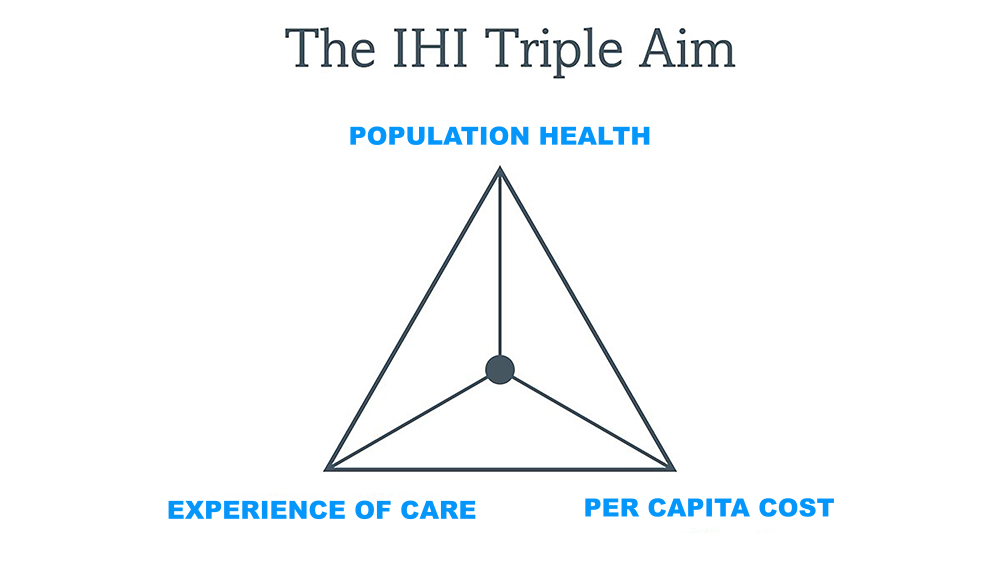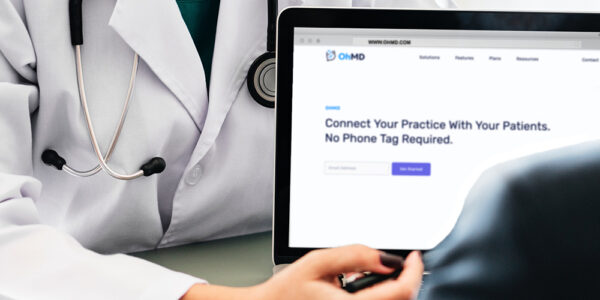What is care coordination?
Care coordination can be defined as the management of a patient’s health care between two or more participants (often including providers, specialists, and the patient) involved in patient care. Organized care is the product of providers exchanging information about a patient’s treatment plan. This includes coordinating all necessary resources to provide the optimal health outcome. Ultimately, the goals of coordinated care are to improve health outcomes by consolidating information, and to lower costs by eliminating redundant tests and procedures. A care coordination platform allows providers to quickly and securely share patient records across a care team to ensure the best care is provided.
Why is care management necessary?
In 2006, the Institute for Healthcare Improvement developed a framework used to describe an approach to optimizing the healthcare system. This framework is called the Triple Aim.

The Triple Aim encompasses the benefits of successful care coordination. When done well, patients treated with the Triple Aim in mind have improved care experiences, better health outcomes, and lower costs. A successful care coordination platform streamlines the care process to include all points on the Triple Aim triangle.
Essential elements of care coordination
To practice successful care management, you must have the following:
- Excellent communication among providers and specialists
- Clear access to a variety of healthcare services and providers
- Dedication to the optimal health outcome of the patient
- Straightforward information that patients understand
Types of coordination
Primary Care
Primary care providers serve as the focal point for all health-based services needed in the day-to-day life of the patient. They also provide strategies for maintaining and bettering health, preventing disease, disease management, and much more. Accordingly, primary care coordination requires communication between providers, specialists, and the patient.
Acute Care
Patients who seek immediate care from life-threatening injuries or severe health issues like a heart attack require extreme efficiency in the coordination of their care. Providers cannot risk wasting time attempting to communicate with colleagues when they need to focus on successful patient outcomes. According to the American Journal of Critical Care, a care coordination platform that prioritizes efficient communication and patient engagement in provider handoffs is a critical aspect of reducing the mortality rate.
Long-Term Care
Patients who must spend extensive amounts of time in the hospital often change levels of care, or even hospitals altogether, depending on the care needed. Treatment plans, medication, test results, and any other protected health information must be smoothly transmitted between hospitals and providers. An accurate, efficient, and secure care coordination platform is essential to making this transition successful.
Palliative Care
Hospice patients require a lot of communication as they often fluctuate between palliative and curative care. Keeping family members included in the treatment plan necessitates an open channel of communication. Active communication between palliative care providers and curative care providers is also essential for ensuring patients are happy and healthy. Thus, all team members rely on a method of communication that allows providers to share information immediately.
How can you implement care coordination in your practice?
To maximize patient satisfaction and strive to obtain the best health outcomes for your patients, implement a HIPAA compliant care management software in your practice. Using OhMD, you can communicate in real-time with colleagues, specialists, pharmacies, other health care organizations, patients, and family members.
Send secure SMS messages, X-rays, lab results, insurance information, or any other document to colleagues in a matter of seconds without worrying about compliance or data issues. Spend more time caring for your patient and less time trying to get in touch with another provider.
Keep your mind at ease knowing we securely encrypt all communication. Only authorized users have access to messages, documents, and any other private information shared between you and your patients.
To learn more about implementing OhMD’s care coordination services in your practice today, schedule a demo.




